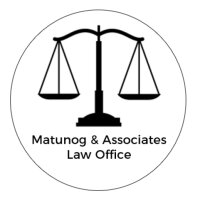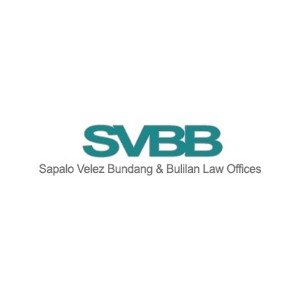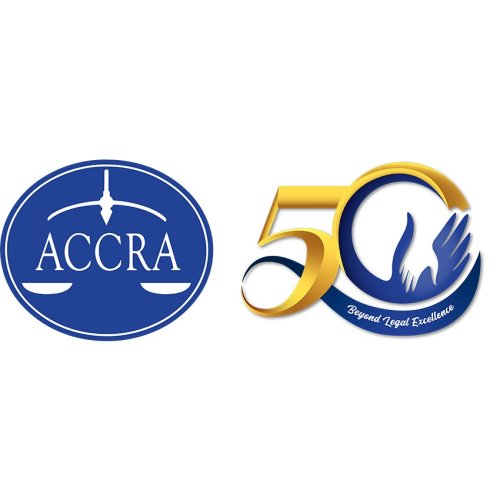Best Structured Finance Lawyers in Davao City
Share your needs with us, get contacted by law firms.
Free. Takes 2 min.
List of the best lawyers in Davao City, Philippines
About Structured Finance Law in Davao City, Philippines
Structured finance refers to complex financial instruments and transactions used to manage risk and optimize funding for companies, projects, or investments. In Davao City, and throughout the Philippines, structured finance often involves creating customized solutions such as securitizations, syndicated loans, asset-backed securities, project finance, and other tailored financial arrangements. These transactions are designed to address the unique needs of borrowers, lenders, investors, and sponsors, especially in large-scale commercial, industrial, or infrastructure projects prevalent in the region. Legal compliance, risk management, and proper documentation are critical components of structured finance law in Davao City.
Why You May Need a Lawyer
Engaging in structured finance transactions can be complex and require specialized legal guidance. Here are common situations where legal assistance may be crucial:
- Negotiating or drafting loan agreements, security documents, or trust deeds for large projects
- Participating in asset securitization or syndicated lending
- Setting up project finance structures for public infrastructure, renewable energy, or real estate developments
- Navigating compliance with local banking and securities regulations
- Dealing with cross-border transactions involving Philippine and foreign entities
- Distressed asset restructuring or debt refinancing
- Resolving disputes related to structured finance transactions
- Ensuring optimal tax structuring and risk mitigation
A lawyer ensures that your rights and interests are protected, and your transactions comply with Philippine law.
Local Laws Overview
Structured finance in Davao City is governed by a combination of national laws and local regulations. Key legal frameworks include:
- General Banking Law of 2000 (R.A. No. 8791) - Regulates banking institutions and credit transactions
- Securities Regulation Code (R.A. No. 8799) - Governs issuance and trading of securities, including asset-backed securities
- Corporation Code of the Philippines (R.A. No. 11232) - Covers company structures used in finance transactions
- Central Bank Regulations - Bangko Sentral ng Pilipinas issues circulars and memoranda relevant to structured finance and credit
- Local Finance Codes and Taxation Laws - Affect the cost and structuring of finance deals at the city level
- Foreign Investment Laws - Rules under the Foreign Investments Act, which may impact cross-border financing
- Project-Specific Laws - Relevant to sectors like public-private infrastructure, real estate, or energy projects
Compliance with these laws ensures that structured finance transactions in Davao City are valid, enforceable, and optimized for both risk and tax considerations.
Frequently Asked Questions
What is structured finance and how does it differ from traditional lending?
Structured finance involves customized financial instruments and approaches designed to meet specific funding, risk, or investment needs - often for complex or large-scale projects. Unlike traditional loans, these structures may use collateral pools, special purpose vehicles, or securitization to distribute risk.
Do I need government approval to engage in structured finance transactions in Davao City?
For many structured finance transactions, especially those involving securities, banking, or public projects, certain regulatory approvals from agencies like the Bangko Sentral ng Pilipinas or the Securities and Exchange Commission may be required.
Are foreign investors allowed to participate in structured finance deals in Davao City?
Yes, foreign investors can participate but must comply with the Foreign Investments Act and related rules. There may be restrictions on certain types of assets or business sectors.
What are common risks in structured finance transactions?
Risks include legal and regulatory non-compliance, default or insolvency of parties, changes in tax laws, and market or credit risks associated with the underlying assets.
What documentation is required in a typical structured finance deal?
You will typically need term sheets, loan or facility agreements, security documents, intercreditor agreements, trust or custodianship agreements, and relevant regulatory filings.
How does local taxation affect structured finance in Davao City?
Local business taxes, documentary stamp taxes, and transfer taxes can significantly affect deal costs and structuring. Tax compliance is critical to avoid penalties and optimize returns.
Can structured finance be used for public infrastructure projects?
Yes, many large public projects in Davao City use structured finance, especially under public-private partnership (PPP) frameworks, to leverage private sector funding and expertise.
What is a Special Purpose Vehicle (SPV) and why is it used?
An SPV is a separate legal entity created for a specific transaction to isolate risk and facilitate the structuring of deals, such as asset securitizations or project financings.
How long does it take to finalize a structured finance transaction?
The timeline depends on the complexity, regulatory requirements, and number of parties involved. Simple transactions may take a few weeks, while more complex deals may require several months.
What should I look for in a structured finance lawyer?
Choose a lawyer with expertise in finance law, regulatory compliance, contract negotiation, and experience handling both local and international transactions relevant to your needs.
Additional Resources
If you need more information or support, consider reaching out to the following resources:
- Bangko Sentral ng Pilipinas (BSP) - The central bank of the Philippines that regulates banks and credit transactions
- Securities and Exchange Commission (SEC) - The agency overseeing securities, asset-backed issuances, and corporate structures
- Davao City Investment Promotions Center - Provides guidance on local investment projects and government incentives
- Bureau of Internal Revenue (BIR) - For information on taxation of financial transactions
- Integrated Bar of the Philippines - Davao Chapter - To find qualified finance lawyers in the area
Next Steps
If you require legal advice or representation in a structured finance matter in Davao City, consider the following steps:
- Identify the nature and goals of your proposed transaction or legal concern
- Gather relevant documents and information (such as project proposals, corporate records, contracts, or regulatory communications)
- Consult a lawyer with expertise in structured finance to ensure compliance and proper structuring
- Request a detailed legal opinion or transaction review for risk assessment
- Engage your lawyer in negotiations, drafting, or dealing with regulatory agencies as needed
- Maintain open communication with your legal counsel throughout the process
Structured finance is a specialized area with high stakes. Early and proactive legal guidance can help secure your interests, avoid costly mistakes, and achieve your business or investment objectives in Davao City.
Lawzana helps you find the best lawyers and law firms in Davao City through a curated and pre-screened list of qualified legal professionals. Our platform offers rankings and detailed profiles of attorneys and law firms, allowing you to compare based on practice areas, including Structured Finance, experience, and client feedback.
Each profile includes a description of the firm's areas of practice, client reviews, team members and partners, year of establishment, spoken languages, office locations, contact information, social media presence, and any published articles or resources. Most firms on our platform speak English and are experienced in both local and international legal matters.
Get a quote from top-rated law firms in Davao City, Philippines — quickly, securely, and without unnecessary hassle.
Disclaimer:
The information provided on this page is for general informational purposes only and does not constitute legal advice. While we strive to ensure the accuracy and relevance of the content, legal information may change over time, and interpretations of the law can vary. You should always consult with a qualified legal professional for advice specific to your situation.
We disclaim all liability for actions taken or not taken based on the content of this page. If you believe any information is incorrect or outdated, please contact us, and we will review and update it where appropriate.












